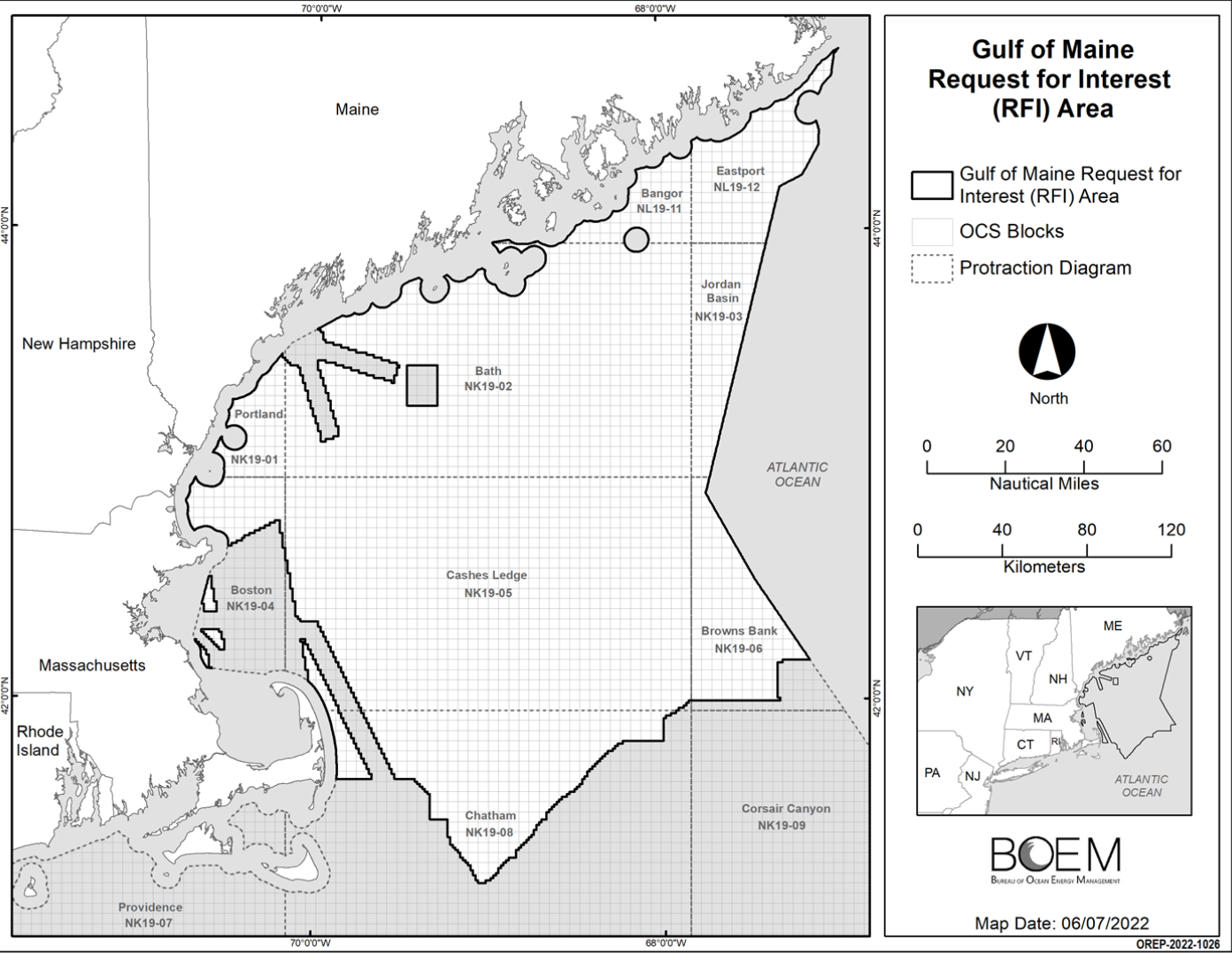A first step toward potential offshore wind energy development in the Gulf of Maine has opened with a formal “request for interest” in leasing tracts in federal waters by the Bureau of Offshore Energy Management.
The RFI is to gauge commercial wind developers’ interest in northern New England waters should BOEM offer lease tracts in the future. It’s an opener to identify offshore location suitable for wind power development, “taking into consideration potential impacts to other resources and ocean users,” according to BOEM’s Aug. 18 notice in the federal Register.
The scope of the query covers over 13.7 million acres in federal waters.
Reponses from the wind industry, fishing, shipping and other ocean users and stakeholders “will be used to narrow the area to be considered for offshore wind development as BOEM moves forward with the Gulf of Maine planning and leasing process,” the agency says.
Offshore wind development is already well underway off southern New England, with the Vineyard Wind and South Fork projects ready for construction on the outer continental shelf.
But wind development in the deepwater Gulf of Maine would be built around floating wind turbines, with a new set of engineering and environmental issues.
Rather than resting on monopile foundations in a shallow seafloor, deepwater floating turbines are moored by cables to anchors, with a larger footprint and potential conflict with mobile fishing gear.
In 2020 the Responsible Offshore Development Alliance issued a plea to New England governors and lawmakers to slow planning for floating wind technology in the gulf. The extensive anchoring and cabling that would be required means “lease areas will become de facto closures to fishing,” the group warned.
Alongside the commercial RFI, BOEM on Friday also issued a request for competitive interest for the State of Maine’s application for a research lease for its planned floating wind energy pilot project. It’s a formal step in the process, which legally obliges BOEM to determine if any competitive interest exists in any area that is the subject of an unsolicited lease request.
Maine and its research partners seek a 9,700-acre lease more than 20 miles offshore that could be a research turbine array with up to 12 machines generating up to 144 megawatts.
The RFCI area is 68,320 acres around requested research lease area to allow to avoid or minimize conflicts.




